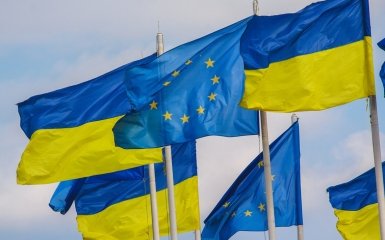The European Union has devised a legal way to bypass Hungary's veto on arms purchases for Ukraine using profits from frozen Russian assets this year. This could also allow the G7 to pay Kyiv $50 billion.
Points of attention
- The European Union has developed a legal way to circumvent Hungary's veto on the purchase of weapons for Ukraine at the expense of profits from frozen Russian assets.
- This decision may clear the way for the G7 to pay Kyiv $50 billion.
- EU sanctions against Russia may be complicated by Hungary's veto, but the European Union is looking for ways to resolve this situation successfully.
- Official Brussels offered Hungary an agreement to circumvent the blocking of decisions on frozen Russian assets.
- Budapest's position may impact Ukraine's future military support and the disbursement process of the G7 loan.
EU has legal loophole to bypass Hungary's veto on support for Ukraine
The EU's top diplomat, Josep Borrell, told the FT that since Hungary had reneged on a previous agreement to receive profits from frozen Russian assets, it "should not be involved in the decision-making on the use of this money". He added that the workaround is "difficult, like any legal solution, but it works."
It is noted that bypassing Budapest can remove an obstacle that could complicate the G7's efforts to attract a $50 billion loan for Kyiv by December, which must be paid from future revenues. Leaders made this decision at a summit in Italy earlier this month.
A legal bypass, to be discussed by EU foreign ministers on June 24, will also be crucial for the G7 deal to work and for the $50bn loan to be released by the end of the year. According to the G7 plan, profits from frozen Russian assets from next year will be used to pay off the loan.
Almost 200 billion euros are immobilized in the EU, mainly in Belgium. At the beginning of this year, the bloc agreed to use the profits received since February to purchase weapons for Ukraine.
Hungary, the most pro-Russian EU member state, has long opposed the bloc's collective military support for Ukraine. Budapest also blocks seven other decisions related to arming Kyiv for a total amount of about 6.6 billion euros.
According to officials familiar with the matter, the U.S. and other G7 partners' concerns that Hungary could block the EU's decision to freeze Russian assets indefinitely have led to significant delays in negotiations over the $50 billion loan. EU funds will probably be sufficient to guarantee the loan's repayment.
However, Hungary can still block EU sanctions that freeze Russian assets because the decision must be unanimously renewed every six months by the 27 EU countries. According to Borrell, Brussels has offered Hungary a deal similar to the one NATO struck with Prime Minister Viktor Orbán last week: Budapest renounced measures to support Ukraine in exchange for other allies helping Kyiv under the Alliance's umbrella. It will not be vetoed, but it was rejected.
Even if they are offered not to be part of the team and their money is not used for Ukraine ... that is not enough." The top diplomat said Budapest's position "has something to do with the strong ties it has with Russia.
Money for Ukraine
The finance ministers of the Group of Seven (G7) countries supported the idea of providing Ukraine with a loan secured by the profits from the Russian Federation's frozen assets to ensure the financing of Kyiv after 2024.
At the same time, 27 EU countries agreed to the 14th package of sanctions affecting Russian LNG supplies. This time, the Hungarian government did not block restrictions in exchange for protecting the Paks-2 NPP project.




